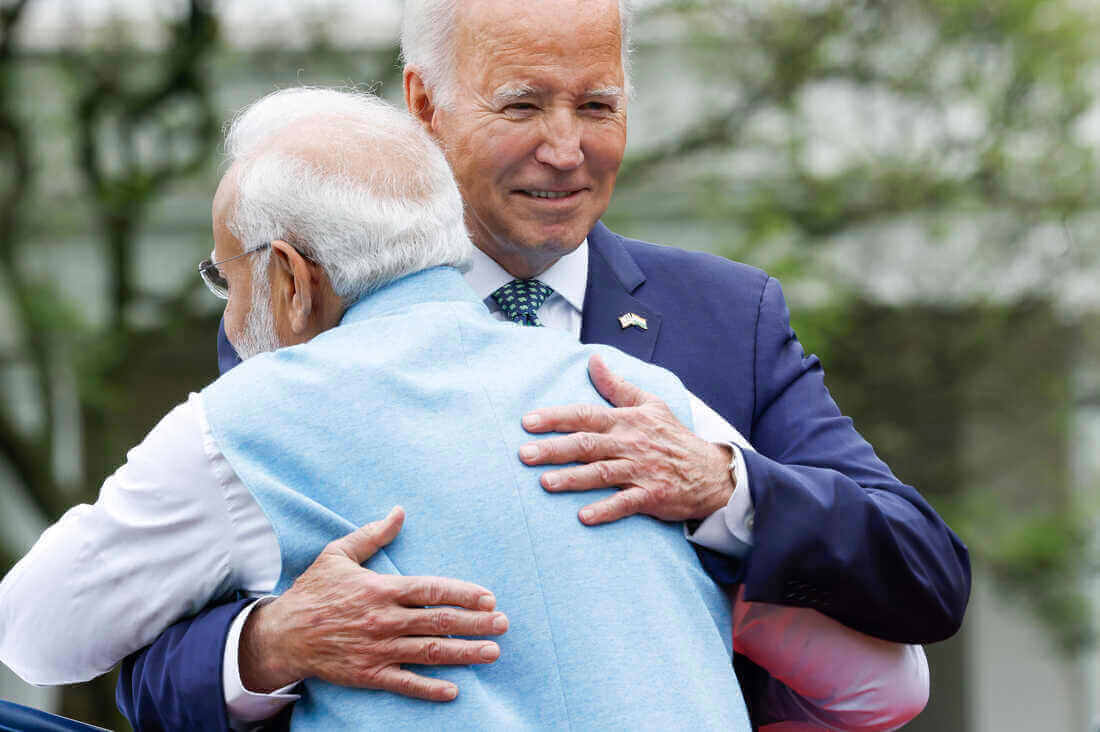During a meeting between US President Joe Biden and Indian PM Narendra Modi on Thursday, India signed the Artemis Accords, which will allow it to expand its scope for space exploration.
According to a readout from the White House, India has joined 26 other countries “committed to peaceful, sustainable, and transparent cooperation that will enable exploration of the Moon, Mars, and beyond.”
As part of the deal, the US’ National Aeronautics and Space Administration (NASA) will provide advanced training to astronauts from the Indian Space Research Organisation (ISRO), with the goal of launching a “joint effort” to the International Space Station next year.
NASA and ISRO are also developing “a strategic framework for human spaceflight cooperation” by the end of this year.
US President Joe Biden and Narendra Modi hailed a new era in their countries' relationship after the White House rolled out the red carpet for the Indian prime minister, touting deals on defense and commerce aimed at countering China's global influence https://t.co/nU0u5wOyC3 pic.twitter.com/HMEBu8jVSR
— Reuters (@Reuters) June 23, 2023
Moreover, India approved a $318 million investment to construct a Laser Interferometer Gravitational-Wave Observatory in India, which will work with similar facilities in the US, Europe, and Japan and “look for ripples in space-time, known as gravitational waves, that provide insights into the physical origins of the universe.”
In addition, the brief said that scientific payloads for the NASA-ISRO Synthetic Aperture Radar (NISAR) have been delivered to India and will be launched in 2024. This will help measure the Earth’s “changing ecosystems like natural hazards and sea level rise.”
Furthermore, the US Geological Survey and ISRO are negotiating an expansion in bilateral data exchange, which will help gain “greater insight about the earth, including for a range of applications, such as climate resiliency, sustainable development and management of natural resources, and disaster management support.”
Apart from this, the leaders pledged to “build an even stronger, diverse” partnership that will advance the “respect for human rights, and shared principles of democracy, freedom, and the rule of law.”
“Our cooperation will serve the global good as we work through a range of multilateral and regional groupings — particularly the Quad — to contribute toward a free, open, inclusive, and resilient Indo-Pacific,” their joint statement read.

